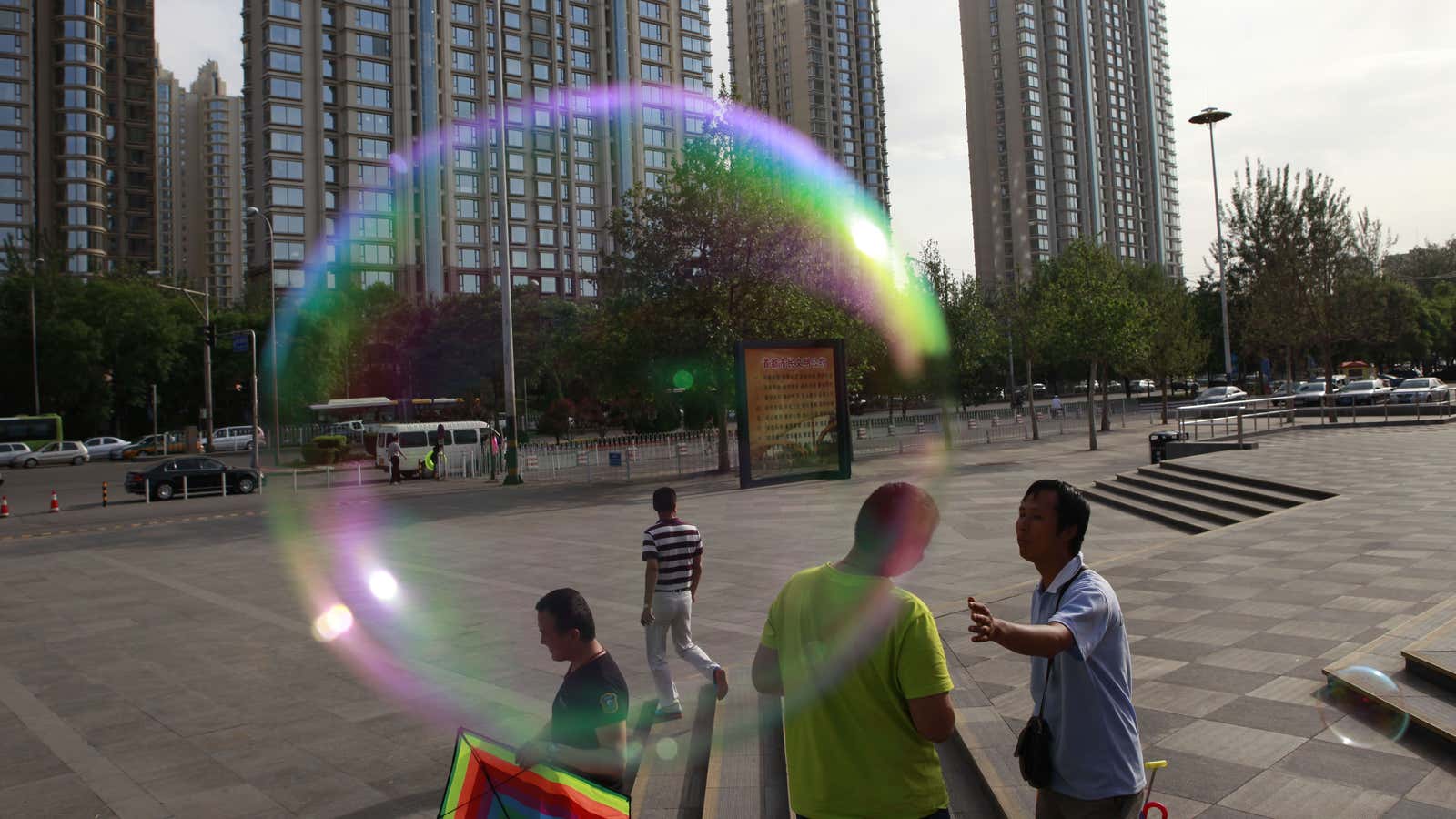The Chinese government’s determined efforts to recreate a bull market in stocks—perhaps we should call it a mechanical bull?—are getting pretty bumpy, as the Shanghai Composite’s 8.5% drop today attests. If Beijing is hoping for ordinary investors to pile back in to the market, the cause might already be lost. Signs are emerging suggest that investors are turning their attention back to another asset class: real estate.
Optimism has shifted from stocks to property, Li Gan, economics professor at Texas A&M University, told BloombergBriefs (pdf).
“Winners from the stock boom have already started taking funds out of the market to buy real estate,” said Li, whose findings are based on his survey of 5,000 households. In the first quarter, property buyers were almost evenly split between those trading stocks and those who weren’t. But in the second quarter, stock investors were 50% more likely than non-traders to buy property.
Like a bouncy castle on a patchy power supply, the Chinese property bubble has been rapidly inflating, deflating, and re-inflating since 2007. Thanks to extra-abundant credit and (probably) the stock market’s shaky state, it looks like it’s re-inflation time: The value of home sales jumped 30% in Q2, after diving 9% in the first quarter.
That’s probably a relief for Chinese banks, given that as much as three-fifths of credit in China is secured with property as collateral, says Fitch, the ratings agency. A further collapse in property prices would have risked loan defaults and cut into banks’ ability to lend.
It should also be great news for the economy; close to 30% of GDP comes from construction (both residential and commercial). However, the excess of housing supply makes it less likely that construction will pick up for at least another year, according to Rosalea Yao, real estate analyst at Gavekal Dragonomics.
This problem is much more acute in smaller cities, as suggested by the official data on average sales prices in 70 big cities.
This divergence will likely persist. According to A&M’s Li, survey respondents were more confident that prices in Tier 1 cities (i.e. Beijing, Guangzhou, Shanghai, and Shenzhen) will climb. His research also showed that 38% of homes in third-tier cities remain empty, compared with 18% in Tier 1 cities.
